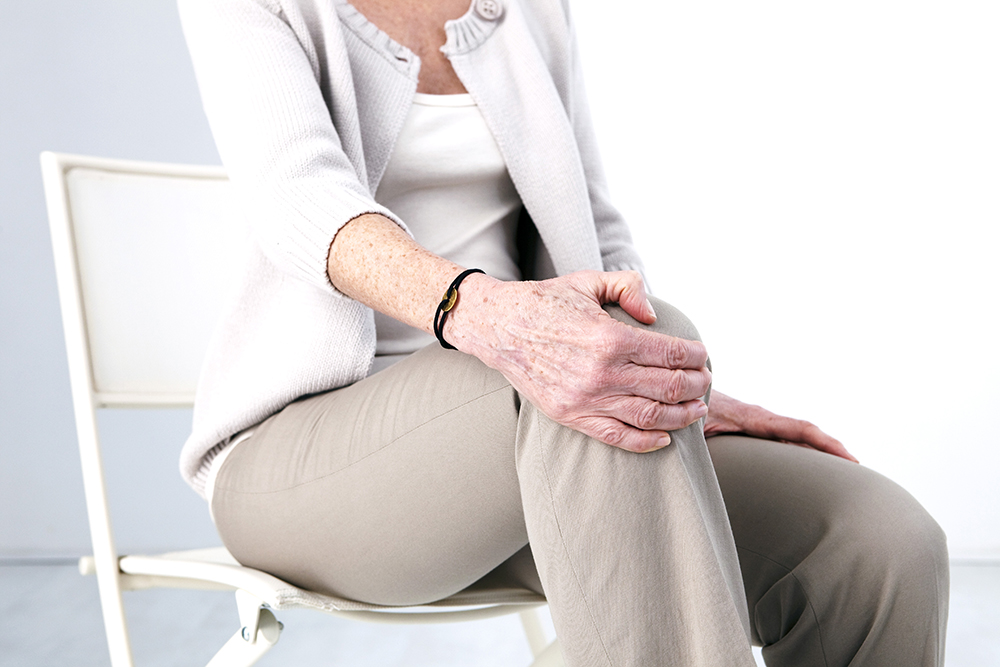Patient Pre-assessment
For pre-assessment purposes, major surgery includes: Total hip replacement; Total knee replacement; Uni compartmental knee replacement (half a knee Replacement); and Tibial tuberosity Transfer.
Intermediate surgery includes: Ligament reconstruction of the knee i.e. ACL PCL MCL; and Micro fracture.
Daycase surgery includes: Arthroscopy of the joint; and Arthroscopy requiring meniscus tear repair.
Why is Pre assessment needed?
Pre assessment is a vital and important part of the patient journey. It is necessary for the surgeon and anaesthetist to have a full patient medical history prior to carrying out any surgical procedure. It ensures the safest possible outcome whilst having undertaken a general or spinal anaesthetic with sedation or local anaesthetic. To commence this process a medical questionnaire is sent to the patient amongst a number of other documentation required.
Pre assessments enable the team to decide whether surgery is appropriately located for the safety of the patient i.e. within the private sector or alternative being an NHS hospital. Pre assessment prepares the patient with valuable information and advice that is needed for them before surgery, whilst in hospital and to plan and organise their aftercare at home.
What does the assessment entail?
The pre assessment appointment will be approximately 2-3 weeks prior to the operation for major surgery. Less, if required for minor surgery. The appointment will be for one to one and half hours.
Observations will be performed on Blood Pressure, Temperature, Oxygen capacity, pulse, respirations, urine test, MRSA /MSSA swabs from nose and top of thighs, Measurements taken for anti embolic stockings full length/ half length, these will be worn for 6 weeks post operatively. For Hip replacements it will not be possible for the patient to apply these themselves. Blood tests and a tracing of your heart i.e. ECG. Any existing physical / medical conditions will also be discussed in detail which may otherwise impact on your recovery.
Then you have the patient journey explained step by step for the approximate two to three day stay. A discharge criteria has to be completed before going home which involves having a post operative x-ray of the joint replacement, a post operative blood test, and a stairs assessment with the use of crutches or sticks if necessary. A follow up appointment for two weeks and six weeks to see Mr Atwal will be given to you on discharge from hospital, as well as separate physiotherapy appointments, commencing with in the first two weeks of being at home. Various criteria have to be fulfilled by the patient before leaving hospital:
• The patient needs to have eaten and drank, if nauseated given anti emetic
medication if warrants.
• Passed urine by the normal route after an
anaesthetic.
• Pain well managed and adequate analgesia given and
prescribed to take home.
• Seen and assessed by physiotherapist prior to
going home and safe with appliances if required.
• Wound reviewed and
assessed before discharge home.
The pre assessment appointment will be approximately 1-2 weeks prior to the operation for minor surgery. The appointment will be for half an hour.
Observations will be performed on Blood Pressure, Temperature, Oxygen capacity, pulse, respirations, urine test, MRSA /MSSA swabs from nose and top of thighs, measurements taken for anti embolic stockings full length/ half length, Blood tests and a tracing of your heart i.e. ECG.(if appropriate). Any existing physical / medical conditions will also be discussed in detail which may otherwise impact on your recovery.
Then you have the patient journey explained step by step for the day. An assessment of the use of crutches or sticks will be done if necessary, by the physiotherapist prior to you being discharged from hospital. A follow up appointment for two weeks and six weeks to see Mr Atwal will be given to you on discharge from hospital, as well as separate physiotherapy appointments, commencing with in the first two weeks of being at home.
Various criteria have to be fulfilled by the patient before leaving hospital:
• The patient needs to have eaten and drank, if nauseated given anti emetic
medication if warrants.
• Passed urine after an anaesthetic.
• Pain
well managed and adequate analgesia given and prescribed to take home.
•
Seen and assessed by physiotherapist prior to going home and safe with appliances
if required.
• Wound reviewed and assessed before discharge home.
If you are over the age of 60 yrs old an ECG i.e. a tracing of your heart, may be required. If you take particular medications then blood tests are also required. A urine test is taken. If none of the latter are pertinent to you then a pre assessment appointment is not necessary. The pre assessment appointment will be approximately 1-2 weeks prior to the operation for minor surgery. The appointment will be for half an hour.
Observations will be performed on Blood Pressure, Temperature, Oxygen capacity, pulse, respirations, measurements taken for anti embolic stockings full length/ half length and worn for 2 weeks post operatively.
Then you have the patient journey explained step by step for the day. An assessment of the use of crutches or sticks will be done if necessary, by the physiotherapist prior to you being discharged from hospital. A follow up appointment for two weeks and six weeks to see Mr Atwal will be given to you on discharge from hospital, as well as separate physiotherapy appointments, commencing with in the first two weeks of being at home.
On admission, you will arrive to hospital on the day of surgery. The ward clerk will escort you from the waiting lounge to the ward. A nurse will admit you, prepare you for surgery. Physiotherapists will see you prior to your operation and give you all the relevant information and equipment for you to use at home. The surgeon and anaesthetist will see you. Analgesia to take home will be arranged. A “Fit Note” if required will be completed and given to you.
Follow up appointments will be given to you prior to leaving hospital for Mr Atwal and for physiotherapy sessions. A criteria has to be fulfilled by the patient before leaving hospital.
• The patient needs to have eaten and drank, if nauseated given anti emetic
medication if warrants.
• Passed urine after an anaesthetic.
• Pain
well managed and adequate analgesia given and prescribed to take home.
•
Seen and assessed by physiotherapist prior to going home and safe with appliances
if required.
• Wound reviewed and assessed before discharge home.
•
Advice is given to leave the wool and crepe bandage intact for 24 hours after
going home, then the patient removes this leaving the waterproof plasters in
place.
Pre assessment processes allow the patient to absorb all the information, advice and guidance thereby allowing them to ask constructive questions pertinent to their individual requirements.
The patient gains a good, confident rapport with Mr Atwal’s nurse, being reassured that they will be well looked after by experienced staff in a safe, professional, environment and that all aspects of their care have been addressed.



QUICK ENQUIRY


